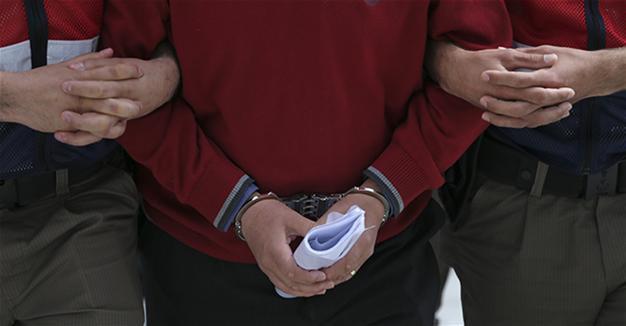Gülenist suspects to wear ‘single-type’ brown uniforms in Turkish courts
ANKARA

AA photo
All suspected members of the Fethullahist Terrorist Organization (FETÖ) under arrest will have to wear “single-type” brown uniforms during court appearances, according to a change planned by the Justice Ministry, state-run Anadolu Agency reported on Aug. 4.The move to make all FETÖ suspects wear the same clothes in court came after a suspect stirred debate by appearing before a judge last month wearing a t-shirt that read “hero.” A number of other people were then detained by police across Turkey for wearing t-shirts with the “hero” design.
President Recep Tayyip Erdoğan subsequently blasted the suspect and suggested “uniform attire” for all FETÖ suspects.
Anadolu Agency reported that the Justice Ministry has launched efforts to prevent any similar “hero” incidents taking place, prompting textile engineers and prison textile workshop heads to be invited for meetings at the ministry.
Several suggestions were made in the meetings, including making suspects wear jumpsuits with zippers on the front. The authorities ultimately agreed on shirts and trousers with “dried almond color,” using alpaca fabric in order for the uniforms to suit Turkey’s climatic conditions.
The uniforms will reportedly be sewn in prison workshops determined by the authorities. The sewing process has already started in two prisons in the northwestern provinces of Bursa and Balıkesir as part of the testing period.
Justice Minister Abdülhamit Gül said on Aug. 4 that efforts were ongoing. If the regulations are adopted, nearly 50,000 clothes will be sewn by inmates and then sent to prisons holding the suspects of cases into followers of the U.S.-based Islamic preacher Fethullah Gülen.
Meanwhile, the Board of Judges and Prosecutors (HSK) has decided for the establishment of eight new terror courts as part of the struggle against FETÖ, widely believed to have been behind the failed July 2016 coup attempt.
The HSK’s move came in response to the huge burden on already existing courts due to the tens of thousands of FETÖ suspects facing trial.
Heavy penal courts will be set up in Istanbul, Ankara and the western province of İzmir, with six of them in Istanbul.
The HSK has also appointed a second court board to the Ankara Fourth Heavy Penal Court in order for it to deal with two cases at the same time. The court is already responsible for the case into activities at the Akıncı Air Base, used by the coup-plotters as a headquarters on July 15, 2016.
In the latest wave of anti-FETÖ police raids, an operation was launched in 20 provinces against 59 people from the Science, Industry and Technology Ministry, 50 of whom are former employees on Aug. 4.
Those sought are reportedly users of the smartphone application ByLock, used almost exclusively by Gülenists to communicate.
According to the Ankara Chief Public Prosecutor’s Office, 50 of the suspects were previously dismissed or suspended from their posts in state of emergency decrees.
Elsewhere, 40 detention warrants were issued in the case into the leaking of the questions of the Police Academy Entrance Exam in 2012.
Some 24 of the suspects were detained in Ankara, Istanbul, İzmir, the Central Anatolian province of Eskişehir and the northwestern province of Kocaeli on Aug. 4.
All of the suspects were previously dismissed or suspended with emergency decrees.
















